One of our guides at NanoLab and on the EspLORE project (you can learn more about them in this article) was Sonia Peggiani, a post-doc research fellow at NanoLab, in the Department of Energy. She did her PhD here, which she completed in 2021 with the thesis ‘Fabrication and characterisation of atomic carbon wires and wire nanocomposites.’ She is currently working on the design and creation of anti-counterfeiting labels for various commercial sectors, and, as she told us, she is going to work on the KEEPER project, starting 1 June.
The enthusiasm with which she talked about her projects and the passion in her eyes inspired this interview, in which she talks about how her love for energy began and the career path that led her to become a researcher.
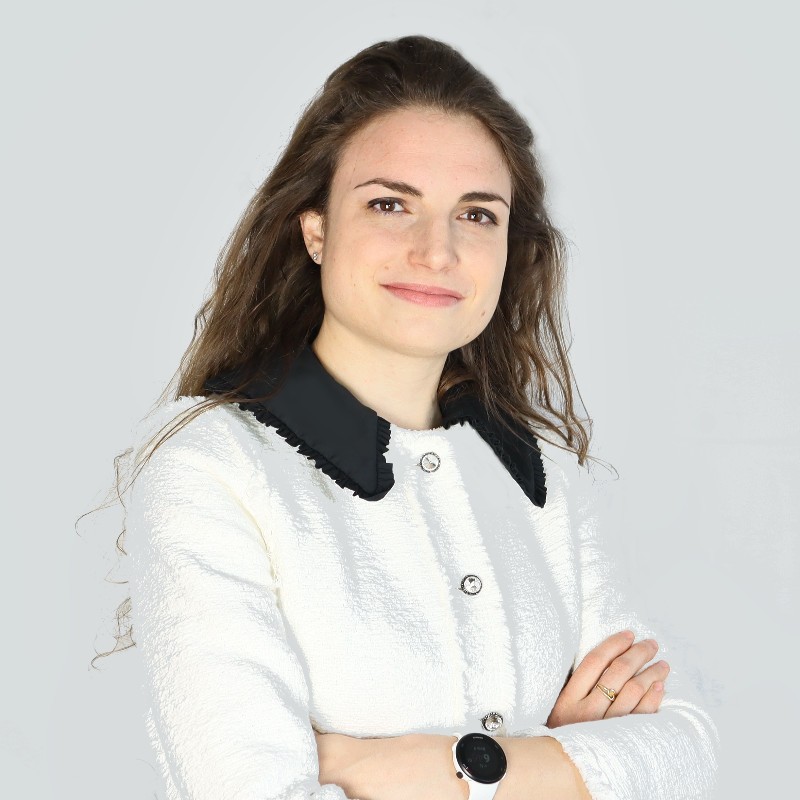
Hi Sonia. Where did it all start?
I was born and grew up in Piacenza, where I attended the liceo scientifico (science-based high school). I am now 30, I live in Milan, but my passion for mathematics and physics had definitely already begun there [at school].
What was it about these two science subjects that won you over at high school?
I have always found mathematics very satisfying. I always hated essays, because I had to talk about myself in some way. [laughs] Actually, it would be nice to know a bit of everything on all subjects. But in my case, I was very clear about that area. I was fortunate because, at that moment, I knew what I wanted to do: the liceo scientifico.
The satisfaction I get from mathematics is that the numbers add up. The solution of a calculation gives me confidence, a kind of serenity.
And in high school, this self-confidence actually proved to be correct…
My maths teacher for three years was very important, he always really believed in me. He always got me involved in the activities the school organised.
To give you an example, in the fourth year, there was a proposal to develop a mathematical model to predict the 2009-2010 seasonal flu, the period in which there was an outbreak of swine flu. It was an initiative in collaboration with the Politecnico di Milano, which also invited us to visit the Mathematics Department. I worked on the project as a team with two of my schoolmates; every afternoon, because we had a deadline to meet.
It was one of the most important things I did; it represents who I am today. It was then that I realised how much I like working in a team, which is what I do today with Ale, Anna and Marco [Anna Facibeni, Alessandro Vidale and Carlo Casari]. It was amazing to discover the strength of the team.
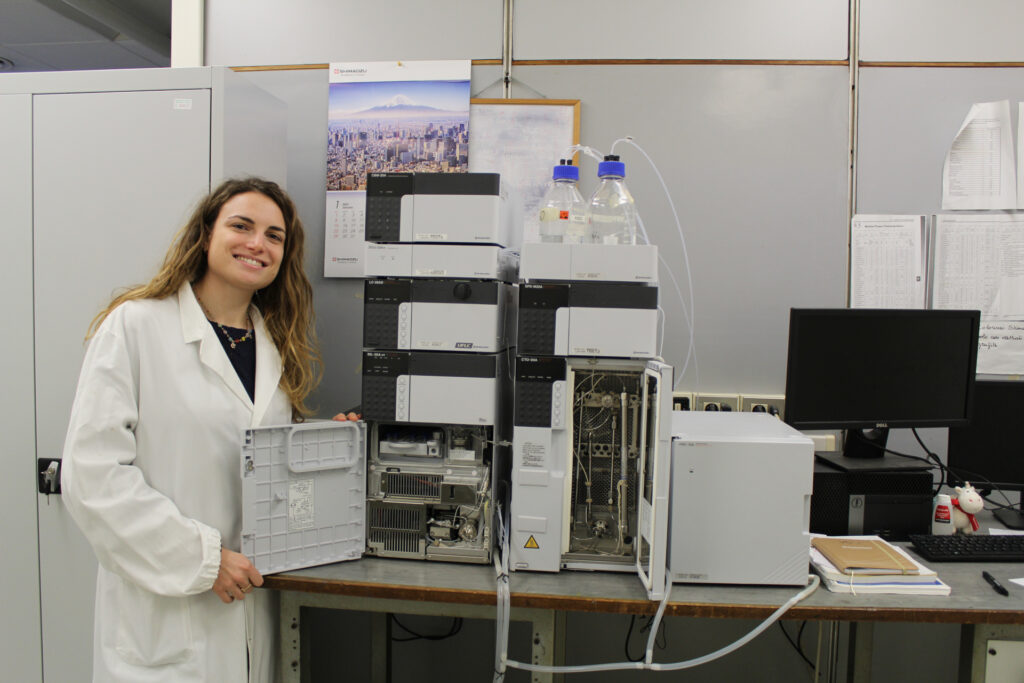
You experienced a very stimulating school environment.
Yes, and I will be forever thankful to my teacher who helped me overcome my fears, encouraging me to participate in these activities.
With the flu project, we take part in the ‘Youth and Science’ competition, in which we won a certificate for maths skills. The extraordinary thing is that they gave the three of us, at barely 18 years old, the opportunity to present the model at MOSTRATEC 2010, a week-long trade fair in Brazil. We met our peers from all over the world, but mainly from South American countries. When they realised we were Italian, they all wanted to get to know us. It was a fantastic experience.
When did you discover nanotechnology?
It happened in fourth year at high school. We took part in a workshop at the Museum of Science and Technology. It was there that I first heard about nanotechnology.
They showed us untreated and processed milk in their nanostructure: the consistency was totally different because the properties changed. They also showed us jackets with nanostructured solar panels. Seeing materials that, when processed to different dimensions, changed their properties, totally amazed me.
It was there that I told myself that I should bear the term ‘nanotechnology’ in mind for the future.
Did you remember it when you were choosing the course for your university applications?
Actually, I didn’t know what I wanted to do yet. For me, engineering was just construction, civil engineering and computer engineering. I didn’t know any other areas. Engineering physics interested me, but I thought there might be too much theory.
I thought to myself: it’s free, I’ll take the exam and select an engineering course at random. I went onto the website, read all the available courses, but suddenly I saw: Materials Engineering and Nanotechnology. When I saw that name, I said to myself: “That is for me!” It was meant to be.
And so I enrolled in materials engineering and nanotechnology. I told my mother, I talked to my friends about the structures of milk, about mercury, conveying my massive enthusiasm over something that was perhaps incomprehensible to them.
I would even have liked to continue for the full five years, but I decided to do nuclear engineering for my master’s programme. Certainly, in part because it meant I could continue studying nanotechnology; but also because another of my personality traits is curiosity, the desire to do something different, the pleasure of trying new things.
Was it the right choice?
I don’t regret it for a second. During my master’s degree, I discovered so many things about nuclear power that I didn’t know.
I did my thesis on semiconductor materials at CERN in Geneva. My goal was to acquire some experience abroad: and what an experience it was! It was an international environment, you met people from all over the world every day. Internationality is one of the things that excites me the most. I spent fourteen months there; it was a unique experience.
At this point, did you decide to take the PhD route?
Yes, and I decided on nanotechnology. As you may have guessed, it’s pretty much my guiding thread. At first I wanted to remain abroad, but then Professor Casari obtained European funding for research into the characteristics of nanostructured materials. And so here I am again at the Politecnico, with all the projects we discussed on EspLORE.
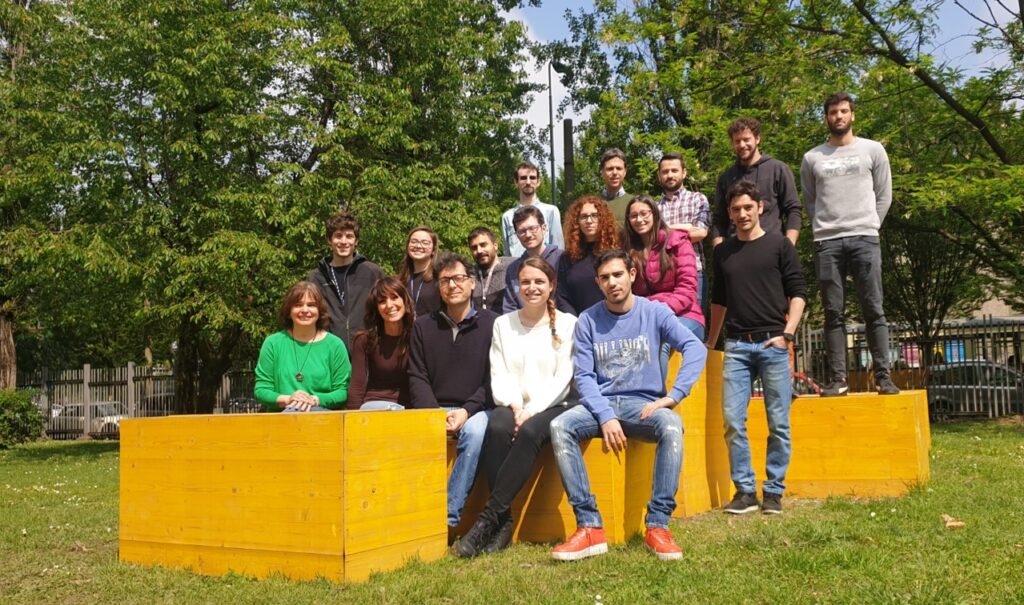
What are you passionate about in your research work here?
The most exciting thing is that it is a totally new project. Just think, a lot of the machinery didn’t even exist, it’s almost all new here. All thanks to funds from the ERC Consolidator Grant.
The great thing was precisely that we had to build something from scratch. The bad thing was that there was no one who was already an expert on the subject, so it took us a long time to achieve any results. Also because we had to fine-tune some steps to close the initial gap.
Do you still have a passion for teamwork?
Yes, definitely. All the people in this building are such amazing people. If this were not the case, if I did not get on well with my colleagues, I wouldn’t be able to do the best job.
Our team of four is very strong: the strength of the team, our enthusiasm, our constant belief in what we do. Working with other people with whom you share the same values is what success is all about. You have that extra grit that makes you give even more. As I always say, two heads (or four, as in this case), are better than one.
The prospect of the start-up has also opened up an unexpected new horizon for us.
Have you already had experience as a classroom teacher?
Yes, and I enjoyed the teaching very much, as I did the dissemination.
Seeing people get curious and ask you questions is a priceless feeling. It gives me so much satisfaction when the students thank me, even simply saying: “Your lessons are great.”
So, you are also passionate about dissemination?
Yes, I like it a lot, because it gives me the same feeling that I described earlier. I enjoy motivating people immensely.
That is why whenever I get the chance, I contribute to informative content, taking part in podcasts or talking about what we do on social media.
Precisely because of the experience I had, I consider projects that connect universities with high schools to be fundamental. There are nanotechnology dissemination events in the pipeline for fourth and fifth grade students, including an event in my home city of Piacenza.
In addition, I am a member of an association, Nucleare e Ragione, whose aim is to inform people of the potential of nuclear power in an objective manner, as opposed to the bad reputation, based on mostly non-scientific arguments, with which it has been burdened since the referendum that sanctioned its banning in Italy. It is a cause about which I feel very strongly.
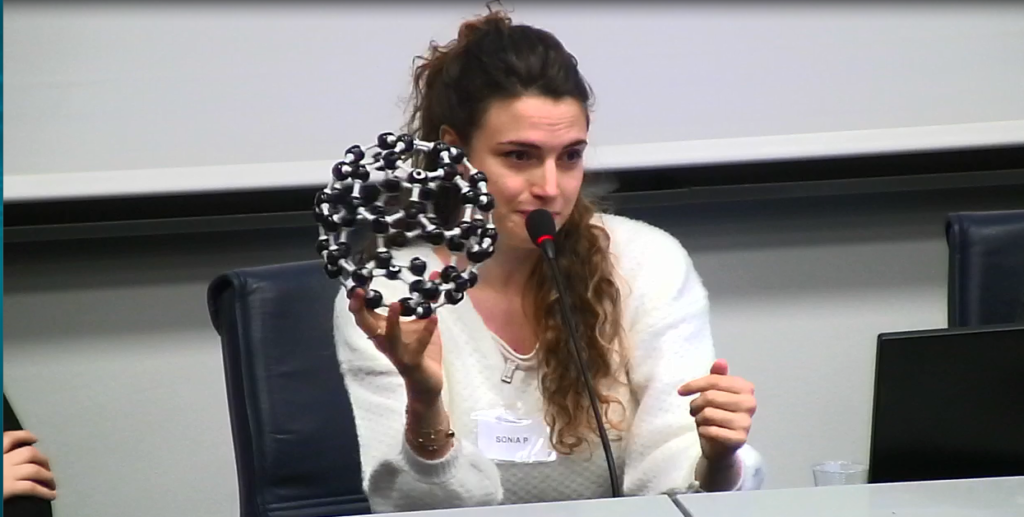
And, instead, how do you feel about the business environment, which is relatively new to you?
As you may have guessed, I like pretty much all situations if the environment is right. The business world is very challenging, but it fascinates me. It is innovative, you deal with young people, it is an opportunity for lots of exchanges.
I am really enjoying this new part of our work. And having these funds that will allow us to test the practical application of our work is very exciting. I don’t know if delving into business and economics is really part of my world, but they are all skills that I can add to my baggage.
You told us about the enthusiasm for nanotechnology that you showed to others. What reactions did you see, in family and among friends, to a passion that might wrongly still seem ‘a bit strange’ to many?
I must say that all the people close to me saw and felt my enthusiasm: they were all delighted. My dad was pleased: ‘I’m happy if you’re happy.’ ‘I don’t understand anything about it!’ my mum said [laughs]. Especially me, I was happy. But feeling approved is still a good feeling.
There’s a bit of an idea that if you’re a woman and you do one of those ‘strange engineering courses’, you have be in awe. Especially in Piacenza, being smaller than Milan, you feel a bit of a rarity. There is a tendency for people to say: ‘You are a genius’. I am not a genius. Simply, every subject, if approached well, has its difficulties, and you have to work hard at it. On the one hand, it’s nice because they pay you a compliment; on the other, it makes you wonder why you have to study engineering to be called a ‘genius’.
Have you experienced prejudice because you are a woman? Have you ever felt, on some occasions, that more was demanded of you than of your male colleagues?
Difficulties because I am a woman, no. I enjoyed my university career, I never wanted to dwell on certain things.
There is one fact: being in an environment that is still predominantly male, I avoided, for example, wearing skirts so as not to provoke comments, which you heard made do those who did wear them. I admit that I limited myself in dressing as I wanted, in order to feel more at ease.
Over the past year, I have paid increasing attention to occasions when male professors or consultants, dealing with a mixed research group, address everything to the male component. Or they address the men with the title ‘Engineer’ and the women with ‘Miss/Mrs’ [TN: in Italian, it is common to address people with the title of their profession in professional/academic settings]. Or when another unnecessary joke about female stereotypes slips out.
Lately I have become more and more sensitive to gender issues. In the past, there was less sensitivity; paradoxically it seemed ‘normal’ to me.
There are also prejudices aimed at men, however. For example, the fact that they cannot show their feelings in public is a limitation that becomes even more evident in a demanding and challenging environment like university. There is still much to be done on all these fronts.
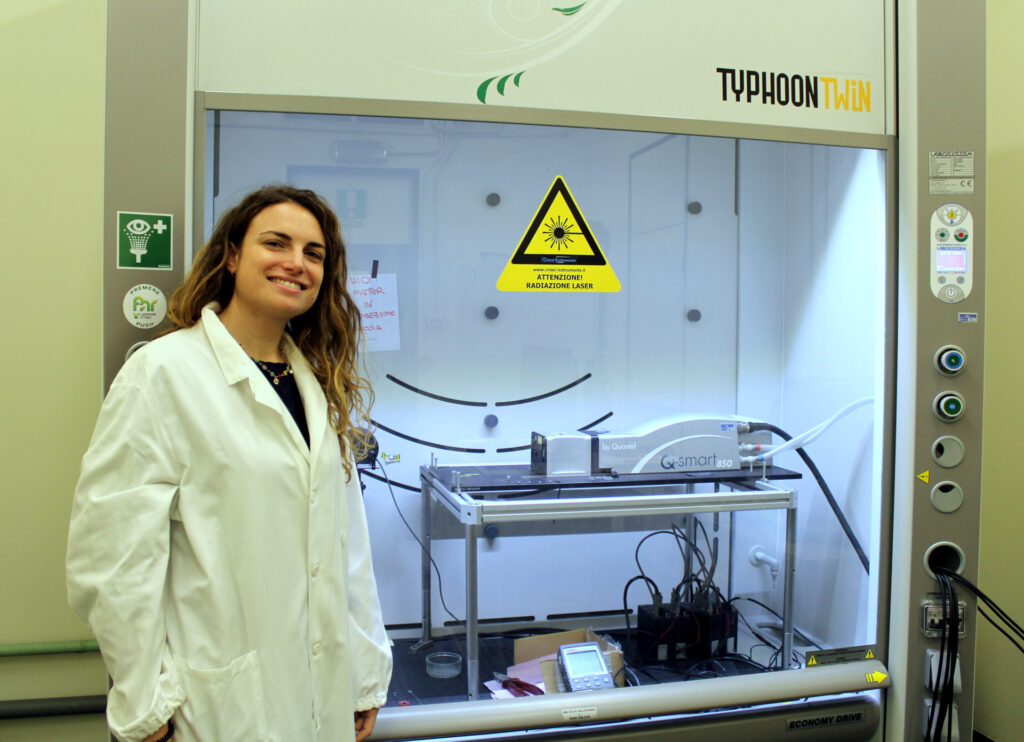
What do you think about initiatives to encourage women to take up STEM studies?
Of course, we need to act for change, but in my opinion we need to work on meritocracy first. I am for gender equality in the absolute sense. On the other hand, creating special projects for women, or in which a proportion of the participants must be women, may in some cases be the only way to force this change. No one has the absolute truth about the right way to get there.
What would you say to a girl who wants to pursue a degree in engineering, but still feels limited in her choices because of all the things we have said so far?
I would say: “Do it! Because if you want it, it will give you great satisfaction. Don’t listen to what other people say; you have to listen to yourself. Don’t think it’s too difficult, you can do it.”
Sharing things helps a lot in this process: tutoring, study groups, dealing with things together with friends, asking teachers for advice, continuous dialogue. Step by step, you get through all the exams.
I would tell that girl to follow her heart, not to feel constrained by the opinions of society. What we want, we can only truly understand within ourselves.
We talked about external pressures. Recent news reports have revealed situations in which these pressures, experienced to the extreme, have led to dramatic outcomes. What would you tell a student who is suffering emotionally at university?
Sometimes there is competition at university. I experienced it myself, it really got to me. For the most fragile people, it can lead to depression and other stress-related disorders caused by expectations, exams, graduation. These are things that should be taken into account by professors, too, who should always take care of the human aspects.
Not passing an exam is not a failure, it is something that did not go as well as it could have. You should always get back on your feet without letting intimidation get the better of you.
I would say: “Don’t look at others, don’t look at grades, don’t live it like a competition. Your grade does not give you value. Your grade is not you. Your grade refers to the performance you gave in that moment. In the future, you do not take the grade with you, but you take what you have learned with you.
Take part in whatever you want to do: workshops, conferences… Open your mind, exchange ideas.
But never tie yourself to a grade.”
